MindDrive
Learn how the mind and the brain affect your mental health
MindDrive is all about understanding the grey matter sat on the top of your body called a brain. In this drive we look at how incredible the brain is and how it interacts with all other aspects of the body.
It looks at what is the difference between the brain and the mind, how they work together and how they manage your day-to-day life.
We look at how psychosomatic behaviour works and how food plays an important part in maintaining a healthy brain. Do we know what natural chemicals the brain actions each day to maintain our body?
The majority of people focus on mental health as a generic term and more importantly on the effects of an unbalanced mind - that is depression, anxiety and stress.
Unsurprisingly most humans focus on what they feel, think or see. Therefore, look at the effects rather than the cause. Typical behaviour is: "Why do I feel so depressed? I will research effects and then listen to a podcast on depression rather than trying to get to the bottom of why my mind Is behaving like this and what can I do about it."
Click on a heading below and see a summary, and if you're interested you can GO and read more about it
Here are some initial thoughts about the mind. GO!
Here are some facts and stats about the mind. GO!
This is about the brain and the mind. GO!
Are the mind and the brain the same thing? GO!
See how themind works – the anatomy of the brain GO!
See how training the brain to reform habits is important GO!
See how you can keep your mind and brain healthy. GO!
See how you can coach your mind. GO!
See how you can benchmark your mind to see if you have a problem. GO!
See how you can concentrate on thinking positively. GO!
If you have a delusional disorder you are less likely to be able to make changes. GO!
If you think positively all the negative thoughts will just go away – won’t they? GO!
See how the mind, brain and body interact with other. GO!
If you’re a visitor to our site you can join and download information, assess your own health and create your own action plans, and even contribute to our site. GO!
We have some ideas on next steps you can take. GO!
We have some additional information and stuff on this subject. GO!
Some Initial Thoughts
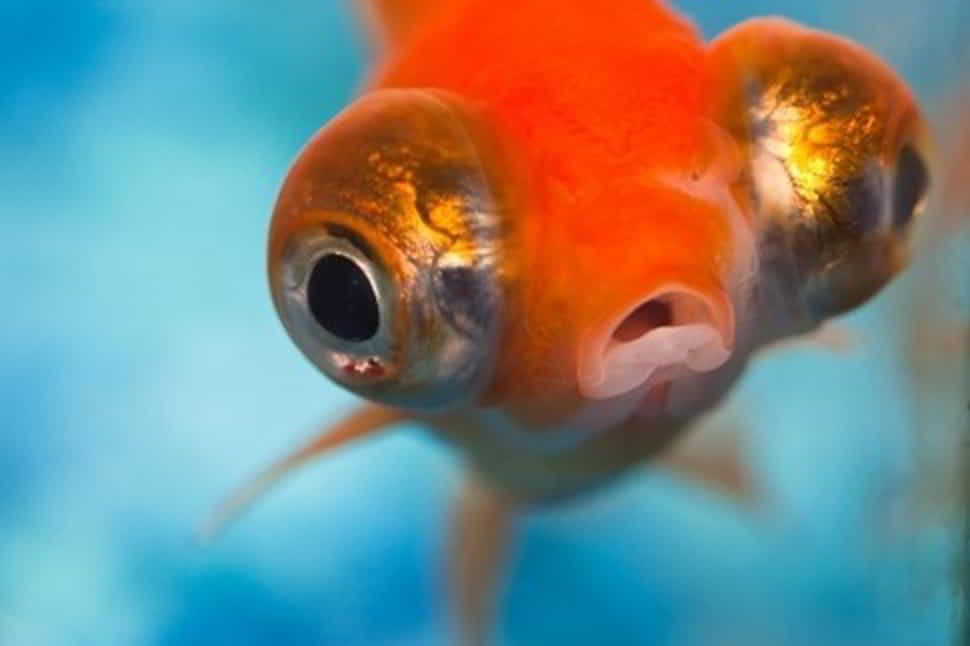
Know the grey matter sitting on the top of your body
The human attention span is shorter than a goldfish
One could argue that looking at YouDriveHealth that the most important Drives are foundation Drives such as Mind, Personality, Change, Sex and Communication. All the other Drives are effects of life. If you master the knowledge and understanding of these foundation Drives you can master all the other Drives.
This is a HUGE subject which we’ve broken down into sections which you can visit
Facts About the mind
take place in the brain every second
of the body’s energy is taken by the brain each day
can be stored in the brain
of all decisions are sub-conscious
on average occur in the human brain each day
of the brain is water
are contained in the brain
Every time your heart beats, your arteries carry 20 to 25 percent of your blood to the brain

Who is in charge of everything within me
So, do we really know ourselves - I mean really know ourselves? Have we ever stopped to think about how our brain and mind work? For sure we look at the external things, things we feel, sense, hear etc. But do we truly know what’s going off inside us, have we ever stopped to think.
Have you ever laid down in a quiet room and heard your heart beating? Of course, but have we ever heard our brain clunking away thinking, no.
The brain is an incredible generally silent machine, busy beavering away doing conscious and unconscious tasks every second of the day. Even at night when it’s on standby it never quite shuts down. It started working before you were born and will continue for up to 15 minutes after you die.
The brain is the command centre that coordinates all aspects of the body and sends split second information back and forth millions of times a day. But do we really know it or anything about it?
We know that if we eat or drink certain things that this can affect the brains performance, such as too much alcohol. In fact, this is a great example of how easily controllable the brain can be. Our social and physical environment can also affect our brain.
Therefore, if the brain and the mind can be controlled why can we not do it ourselves, well the short answer is we can. Easier said than done as the saying goes because humans as stated above struggle with span of attention, maintaining focus and generally are easily distracted by other life things.
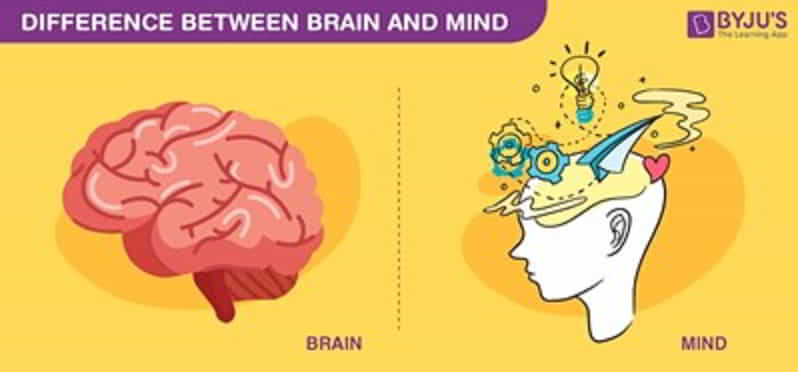
The mind and the brain
Most people think the brain and the mind are one and the same but according to leading Neuroscientists the mind and brain are interchangeable. They use one word or the other to talk about the same thing: the organ in our skull that we use to think. According to neuroscientists the brain is linked to the mind but have separate functions.
The mind uses the brain, and the brain responds to the mind. The mind can also change the brain in a number of ways. People choose their actions—the brain does not force a person to do anything, it merely stimulates actions within the mind which then feeds back information to the brain. All very complex. The brain performs conscious and unconscious action every second and interacts information to the mind in order to stimulate further conscious actions.
Click on any of the tabs on the right to see more information
The mind is energy, and it generates energy through thinking, feeling, and choosing. It is our aliveness, without which, the physical brain and body would be useless. That means we are our mind, and mind-in-action is how we generate energy in the brain. It can use dependent upon the task 400 to 600 calories a day but research has shown Chess players can use up to 4000 calories a day.
The mind is therefore a place where brain activity takes place. The mind works with the brain feeding information back and forth, responding to information, taking actions with the body, sending information to other parts of the brain that requires the information in order to form more actions and reactions.
The brain can send information conscious and unconsciously around the body and to other areas and organs. Sometimes its incorrect, sometimes not. it’s not always the right information which results in a reaction. Leading doctors often say that the human body is and incredible sealed vessel but all human bodies have flaws and the brain and mind respond, adjust compensate for those flaws.
So, it’s complex, but as we said before the brain can be controlled and managed more efficiently with coaching. It’s Just like learning a new habit or skill. At all ages we can learn something new.
What Is Neuroplasticity or brain plasticity?
Just getting technical for a moment but it’s really important to understand.
Neuroplasticity, also known as brain plasticity, is a term that refers to the brain’s ability to change and adapt as a result of experience.
There are two main types of Brain plasticity:
Functional plasticity, the brain’s ability to move functions from a damaged area of the brain to other undamaged areas.
Structural plasticity, the brain’s ability to actually change its physical structure as a result of learning.
How brain plasticity works
Neurons that are used frequently develop stronger connections and those that are rarely or never used eventually die. By developing new connections and pruning away weak ones, the brain is able to adapt to the changing environment.
While plasticity occurs throughout the lifetime, certain types of changes are more predominant at specific ages. The brain changes a great deal during the early years of life, young brains tend to be more sensitive and responsive to experiences than much older brains.
Brain plasticity is always developing, the more you continue to develop the more your plasticity grows and regrows. Here are a few ways you can do this;
Learning anything new, including computer games, languages, hobbies, arts, playing an instrument, travel and social history etc.
So what this means is the brain and the mind are open for change and development which again means many negative thoughts, feelings and emotions coming from the brain and mind can be worked and developed into positive affirmation. Also dealing with life’s negative situation can be managed and restrained so the impact is less. This means we can control, anxiety, depression and stress.
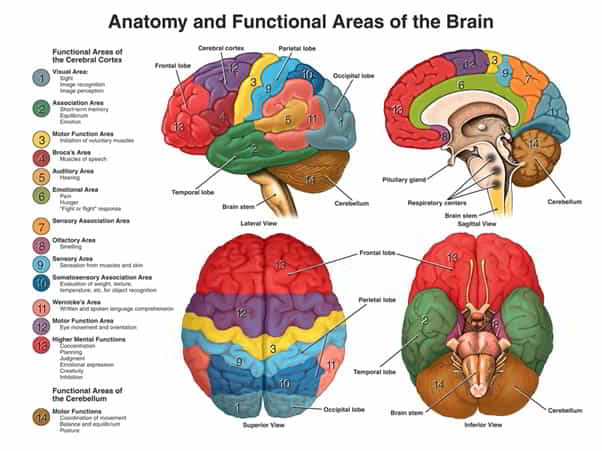
So how does the engine (brain) work
The brain is the engine that coordinates everything in the body and can be affected by things externally. Below is a short video of how the brain works technically.
The brain sends and receives chemical and electrical signals throughout the body. Different signals control different processes, and your brain interprets each. Some make you feel tired, for example, while others make you feel pain. Some messages are kept within the brain, while others are relayed through the spine and across the body’s vast network of nerves to distant extremities. To do this, the central nervous system relies on billions of neurons (nerve cells).
Click the picture on the right to see a 6 minute video explaining how the brain works.
So, the reality is the brain is complex, brilliant, malleable, change orientated, habit forming. It’s smart and can be developed, therefore the key message is: We can manage our brain.
The brain is a constant learning machine. The brain has the capability to clean up its data and administer filing of old and new information. They say our brain is like a computer – but is it really? It’s a thousand times more powerful than any computer as it has the capability of rational thinking and make abstract thoughts. This is where the mind comes in. The mind has three basic functions: thinking, feeling, and wanting. The three functions of the mind — thoughts, feelings and desires can be guided or directed either by one’s native egocentrism or by one’s potential rational capacities.
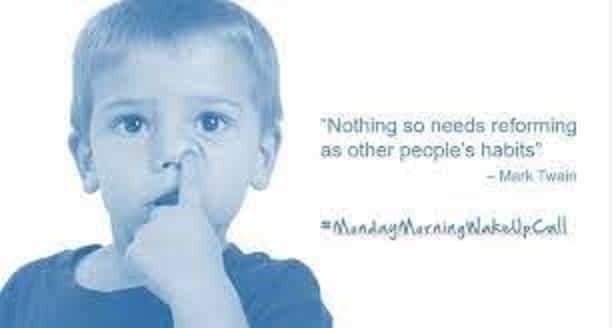
Habit forming and reforming are attributes of the brain but we have to develop will power
Humans are creatures of habit so they say as a general term. In reality this is half the problem. We grow up as children often in a habit formed lifestyle; foods, leisure, bedtime, family time. Etc We are building habits from the word go.
We form habits that the subconscious creates and we don’t even realise it. Our lives become habitual; We start work, we eat late at night, we drink too much alcohol and do-little exercise. Our brain loves habits that the subconscious makes and once embedded these are extremely difficult to shift. These are lifestyle habits.
Add to this smoking and alcohol and drugs of all kinds which have an addictive tendency and over 20 years we have conditioned our bodies without even realising it, until one day something goes wrong. Its fair to say excessive anything can have a major impact on the brain, mind and body. Social habits such as drinking and smoking, eating or drugs are not only addictive but are social-able so they carry a human interaction element, which most humans like. When trying to change a habit that humans enjoy that is an even harder task, but not impossible.
Obesity is a good example of psychosomatic behaviour. We know that serious obesity often goes hand in hand with mental health issues, but not always, lifestyle habits also play a significant part in achieving this physical status. If you ask most morbidly obese people, have they tried changing their lifestyle or habits they will say, constantly but then they fall off the wagon as the saying goes and start back on old habits.
They say it takes 90 days to make a habit good or bad. An example of this is smoking and drinking. Smoking we know isn’t good for you long term so they introduced the e cigarette so that you don’t lose the habit but reduce the damage nicotine has on the body. Non alcoholic beer can be a substitute [ are you mad] for alcoholic beer. Again, not losing the habit but reducing the alcohol impact on the body.
We have seen so many humans create new life habits that transformed their lives but equally for as many successes there are 10 failures. But what happens to those failures? Well usually those failures finally start to look for excuses as to why; fatness runs in the family, its genetic, I am too busy, I’m big boned, and then finally thanks to the liberal illuminati I’m fat and proud and there’s nothing wrong with been fat. Well Adele said exactly that 5 years ago and look at her today.
So, if we accept, we can learn a new habit good or bad over a given period such as stopping smoking or drinking or losing weight then we can do the same with our brain and mind. So, the effects of an untrained mind are stress, depression and anxiety.
Let’s focus on the cause of mental health issues rather than the effects. Imagine going to the doctors with a rash on your hand. The doctor will ask several probing questions and finally give you some cream to rub on; effectively treating the effect not the cause. Food allergies are one of the hardest things to track down because we only see the effects and never know what the cause is.
We talked in other drives about emotional intelligence in respect of taking charge of your mind and thought process. Not dismissing negative thoughts but managing them. Asking yourself why you are feeling the way you do etc.
Many professionals say mindfulness is the answer when in reality this isn’t always the case. I have heard from many people who say I think positive thoughts but then as soon as I go to work my positively takes a bashing. Mindfulness develops positive thought and thinking internally but lots of mental health issues occur externally and for every positive statement there are 10 negative ones. The key is to manage negative interactions by learning to manage your emotions.
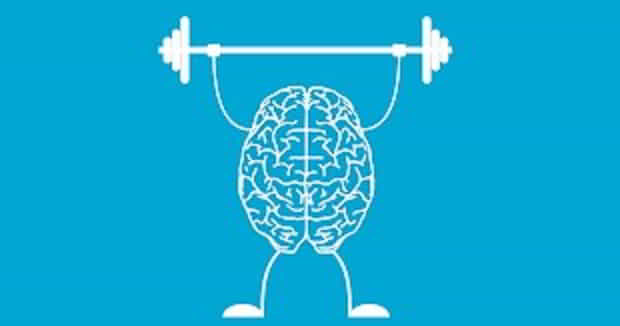
How can I keep my brain and mind healthy?
Keeping our brains healthy is not rocket science and very similar to keeping our hearts, lungs, liver and other organs fit. It’s all about balance and keeping a proper check on what we do.
We need the right amount of sleep
We need a balanced exercise
We need a balanced view of food and drink
See the tabs below for more information.
Click on any of the tabs on the right to see more information
The problem is often humans aren’t balanced and generally do things to extremes. Let’s cover one example. Dieting. We look in the mirror and see the fat rolls and think OMG!!! I need to go on a diet. No prep, no planning, change of food and buy a bike or join a gym. We go crazy and start a major change to our lives in every way. After a week, our bodies, muscles ache, our hunger pangs rise. Our poo is too loose or you can’t go and your metabolism is all over the place. We start to feel miserable. We lose 3 kilos. God this is hard. Our friends say coming to the pub or are you coming out Saturday night. This is all wrong. We didn’t get fat overnight so why try to lose the fat within a month. It requires a long-term plan to lose weight and manage expectations. Don’t dramatically change your lifestyle, due it gradually, it will work.
Instant coffee, instant remedy is what humans are looking for. Humans are great at the short cut; we are wired to make life easier so if they invent a pill that makes me lose weight, I will pay for it rather than change my food and exercise habits. Medically the UK love antibiotics as its one pill kills all remedy. If we are suffering from mental health we look to medical professionals for advice and ultimately get medication which isn’t the answer. CBT cognitive behavioural therapy is the answer or start taking personal responsibility for your own brain, and mind and learning new techniques on brain coaching.
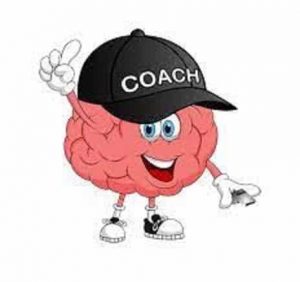
Brain and mind coaching
Brain coaching isn’t about necessarily becoming smarter or doing crosswords or sudoku but about a variety of things that stimulate the brain. Now assuming you read the above paragraph you will see that creating the right environment for the brain and mind is essential; right food, right sleep, right exercise, right social environment.
Here are some points to help;
• Learn more about the brain, emotions, the mind and emotional intelligence
• Find out are you an internal or external locus of control
• Are you a cup half full/empty person? Understanding your personality types helps you in planning change.
• What is your attitude to change or are you a creature of habit, this helps you to know how easy or hard change is going to be?
• Talk to others on the journey and people who have an interest in personal development
• Carry out self-research on self
• When watching the TV ask yourself is this programme doing me any good or could I be doing something better
• Are you a fantasist and make things up about yourself to others because that won’t help?
• Pay real attention to your thoughts. Book time in your diary to think things through especially on a long walk or car journey.
• When you’re in the gym listen to personal development podcasts
• Make a long-term plan of change and be prepared to review and change it as you go along, but don’t try too hard, pace yourself and be happy with small incremental changes
• Talk cause every time and not effect. If you focus on the cause the effects will disappear
• Learn to control your emotions, understand why they happen and develop a safety net of time. Once you have been feeling a certain way for a given time, find the key to change your mood.
• Talk to a specialist but not a mad one.
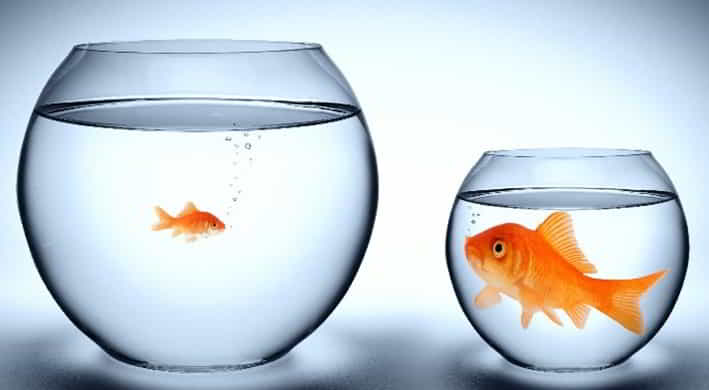
How much is much - how big a problem do I have (benchmarking)?
One point made by many psychotherapists is when their come to them for mental health issues such as depression, anxiety or stress they have not got a clue how bad it is. What does bad/good look like.
When a client comes to me and says I feel depressed I ask them to describe how it starts, how long it lasts and what are your feeling physically and mentally. Sometimes I say to my clients; surprise my god, I must be depressed too because I feel like that. A person who feels depressed twice a week for an hour does not have mental health issues otherwise the entire population would have mental health issues. I often said if you are depressed for a week or a month and cannot get out of it then there is something wrong. Benchmarking is a good way to be able to see what good / bad looks like.
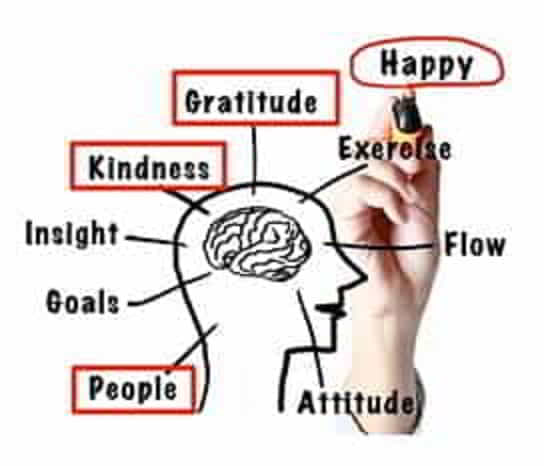
Concentrating the brain and mind on positive thinking
I don’t know whether you every realised this but humans are naturally negative. True, we find it easier to be negative than positive. There is something in negative messages that we love. The media is constantly full of negative messages and headlines and even a positive story seems to have a negative headline because we are more attracted to drama. Well thankfully not all people lean to the negative, usually the cup half empty people do that and enjoy sharing their misery with cup half full just to wind them up.
In the brain negative energy and thought is created just as is positive thought and energy. Self-doubt, fear of the unknown, self-consciousness, low self-esteem are all swimming around in there if you let them.
Benchmarking Negative/positive thought. Like benchmarking how bad is my stress level, you can do the same with negative and positive thought. The problem with humans is they don’t always give each other feedback. Feedback usually takes place in an argument or disagreement!!!
In fact if more feedback was given then people would stop and think about themselves more. Ever heard: OMG you are so negative, you really see life as half empty and you see negativity in everyone and everything. Alternatively: You are so naïve you see only the positive in everything and sometimes it’s not helpful. Well impassive feedback can sometimes help people take a step back and assess themselves.
Allowing yourself to fill your brain and mind with negative emotion is your choice. There is nothing wrong with this on the odd occasion but over a longer period you create a negative habit in the brain.

Having a delusional disorder could stop you making change happen
What is a delusional disorder? Well, there are extreme versions of delusion and we wont discuss that here. We are referring to people being delusional about themselves; looking in the mirror and not seeing themselves staring back, be it looks, body size or image. The delusion that you can sing like Whitney Houston when you sound like a cat being murdered. All humans at some stage like to big themselves up especially if they have little or nothing to show for their life efforts to date. But when the bigging up turns into delusion and you convince yourself your something else that is different..
Humans are great at building veneer around themselves [ see RelationshipDrive] especially if their life or persona isn’t that good. In fact, asked this question how long does it take to get to know someone the answer is; if they are open and honest and the other person is open eyed then a short time but if a person is delusional, they can develop the theme for many a year.
Being delusional and having mental health issues don’t work well together because you are not being true to yourself and seeing yourself or your issues for what they are.

Let’s all think positive and the negative will go away - so wrong
We hear this message so often about positive mindfulness but does it really work, well sometimes or until you step out of your door and someone tries to P*ss you off before you’ve even got to work. There are so many mindfulness video and books saying; think positive before you get out of bed; listen to the birds, look at the pattern on your curtains or bed sheets. This is all well and good but for the majority of humans these aren’t as strong a driver as a negative thought that you are about to drive for an hour through rush hour traffic and work with a complete d*ck of a manager.
So, what is the answer. Well, you have to accept life is full of negative people and situations that are designed to affect your mood. Here are few tips on sorting this problem:
• Sit down and make a list or talk into your phone as your walking or driving.
• Take each item on the list and ask yourself why does it affect my mood?
• How long does it affect my mood?
• The last time it happened how long and how did my mood shift to become more positive, what was the catalyst that changed my mood again.
• Ask yourself when I was down for half a day last week, how did it happen, why and how long did it last and what brought about a mood change.
• Once you think through the causes you need to think of ways of not to feel negative, steps you can take.
• Only allow yourself a few hours on each subject and once you have made a plan stick to it. Don’t revisit it unless it didn’t resolve
• Remember you won’t stop negative thoughts and influences but you can bounce them off you with a PMA forcefield.

How do the brain, mind and body impact each other - Psychosomatic interaction
The body, brain and mind are inextricably linked and chemicals, energy, messages pass around this sealed vessel. Sometimes If there is discord in the brain and mind this can impact on the body; psychosomatic. The body can behave in an unusual manner and doctors don’t know why. Some 6 to 8% of the UK population has some form of psychosomatic disorder, that could be minor and not noticeable to severe debilitating symptoms.
Some signs of people suffering from somatic symptoms are:
Fatigue, Insomnia, Aches and pains, such as muscle pain or back pain. High blood pressure. Trouble breathing. Indigestion. Headaches and migraines. Erectile dysfunction. Skin rash. Stomach ulcers.
How do you determine if you have the disorder?
It is very similar to food allergies and a case of trial and error and observation over a period of time. What is not helpful is worrying about the unknown. Worrying will only exacerbate the matter and could mask the real issue. Just stop and sit calmly and monitor yourself over a month or two and look at your lifestyle, eating, drinking, sleeping etc. Have you done anything different such as changed house cleaning products, air fresheners etc.? Do your research. If the feelings continue discuss it with your doctor.
Some of the treatments for psychosomatic disorder are:
Cognitive behavioural therapy.
Medications, such as antidepressants.
Mindfulness-based therapy.
Referral to a specialist in mental health.
How can I prevent psychosomatic disorder?
• Be realistic about what you can and can’t control.
• Exercise regularly.
• Get enough sleep.
• Journal to increase awareness of your thoughts and feelings.
• Limit alcohol and avoid smoking.
• Maintain a healthy diet and weight.
• Meditate or practice progressive muscle relaxation.
• Set limits to reduce pressure on yourself.
Talk to others [benchmark] to see how bad is bad. You may have minor symptoms and therefore just live with it especially when it comes to say taking medication. The last thing you want is to take medication over a long period as this may have a bigger impact on you.
For visitors
Why don't you join us?
You can register to join us as a member, when you’ll be able to download our stuff and comment, or as a YouDriver when you’ll also be able to check your health and set up your own action plans to make some improvements. If you’ve already registered, sign in below. Or let us know what you think.
Self discipline

Next Steps
It doesn’t matter what stage you’re at – it’s important to be the best you can be. At the end of the day it’s about taking personal responsibility – You Drive!
It’s really your choice. You can find out more information about the subject, or see other institutions that can help by going to Support. There you will find organisations, training, coaching, self-help courses and other items to support your personal change. We have also started developing a panel of experts to provide info, advice, help and support.
Get Support
There are times when you need some help to meet your aims – a helping hand. That might be an organisation that can provide you with some help, some specialised information or support, or just getting some background reading material.
You can see these by clicking the Support button here. Some products or services contain affiliate links and we may receive a commission for purchases made through these links
Experts
We are compiling a list of experts who can provide advice, help or specialised services. You will be able to access these experts from anywhere on our site you see our ‘Experts’ symbol. Click the green E to see what our Experts list will look like, with a couple of imaginary ‘experts’ added!
More Information
Scroll down to see more information on this Drive.
If you register you can also download reports, white papers, quizzes and other collaterals. We will never ask you for any financial information, and we’ll only send you the information you want. You can register for our site either above or in the footer below. You can provide your own questions and experiences in order to help other members. We only moderate for spam and inflammatory language – see our moderation policy.
If you’ve found this interesting, then please share it on social media. Choose your network!
More information
Who’s in Charge?
Free Will and the Science of the Brain
The renowned neuroscientist Michael S. Gazzaniga explains how the mind ‘constrains’ the brain just as cars are constrained by the traffic they create.
Unravelling the Mystery of How the Brain Makes the Mind:
Unravelling the Mystery of How the Brain Makes the Mind
How do neurons turn into minds? How does physical “stuff”–atoms, molecules, chemicals, and cells–create the vivid and various worlds inside our heads?
Creating Good Habits:
Learn How to Adopt Positive Habits While Getting Rid of the Negative Ones to Achieve Your Goals in All Areas of Life
Creating good habits and ditching, or at least minimizing bad ones is crucial if you want to achieve the success you are after.
The Subtle Art of Not Giving a F*ck:
A Counterintuitive Approach to Living a Good Life
In this generation-defining self-help guide, a superstar blogger cuts through the crap to show us how to stop trying to be “positive” all the time so that we can truly become better, happier people.
How To Stop Worrying and Start Living
What Other People Think Of Me Is None Of My Business
This book will explore the nature of stress and how it infiltrates every level of your life, including the physical, emotional, cognitive, relational and even spiritual.
Go to Mind A-Z of mental health
This NHS backed Wellness Recovery Action Plan helps you overcome unhelpful behaviours – it can be done by you at home – you might want do it in conjunction with someone you trust. Download it here.
Public Health England with the NHS support the OneYou initiative. Do their Mind Plan quiz which after 5 simple questions gives you some things to do and lets you create an action plan.
The Money and Mental Health Policy Institute produced a paper showing the link between money and mental health – download it here.
The Mental Health Foundation Institute have a paper on Fundamental Facts on Mental Health (2016) – download it here.
